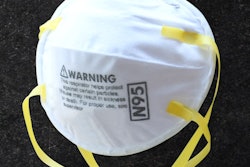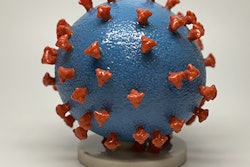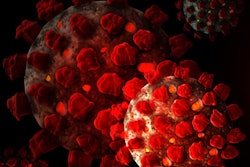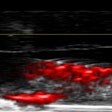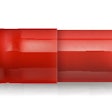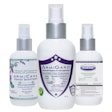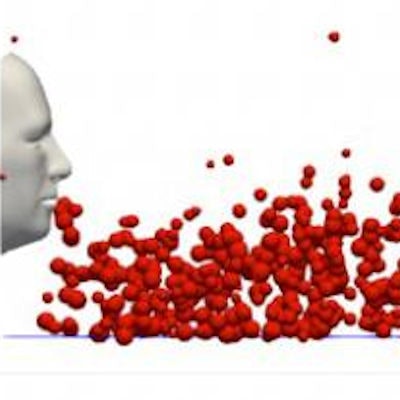
Wearing a mask doesn't eliminate airborne droplet transmission of viruses such as SARS-CoV-2 or completely shield the wearer from droplets expelled by others, according to a new study published on June 16 in Physics of Fluids. In addition, mild coughing further cuts protection.
Dentists, hygienists, assistants, and other specialists who must work in close quarters with patients should remain mindful of the gaps in protection as they continue heading back to work during the pandemic.
"The implications of the reduced mask efficiency and respiratory droplet transmission away from the mask are even more critical for healthcare workers," wrote the authors, led by Talib Dbouk, PhD, a senior researcher at the Defence and Security Research Institute of the University of Nicosia in Cyprus.
Better than none
Agencies such as the U.S. Centers for Disease Control and Prevention (CDC) and the Occupational Safety and Health Administration (OSHA) have recommended that the public wear textile, surgical, or respiratory face masks to prevent the spread of SARS-CoV-2, which causes COVID-19. The CDC also has issued new guidelines to better protect dental teams, which are especially at risk due to aerosolization and their close proximity to patients. Because nothing has been proved to eliminate risk completely, the best practice has been to try to avoid poorly ventilated areas, stay out of crowds, and maintain good hygiene.
Previous studies have shown that droplets of saliva can travel 18 ft in five seconds when an unmasked person coughs. Because the droplet dynamics around a face mask filter aren't completely understood, the researchers analyzed fluid dynamics to study the transmission of respiratory droplets through and around a face mask filter during multiple cycles of coughing.
The researchers modeled a sequence of coughs by applying several cycles of forward-directed velocity pulses to the initial droplets. The model accounted for factors such as droplet-to-droplet and droplet-to-air interactions and evaporation. Next, they performed numerical simulations that account for droplet interactions with the porous filter in a surgical mask.
The nominal efficiency of a mask consisting of air-permeable filtering material made of porous fibrous layers is 91% and reduces the number of droplets that leak out the side of it. However, it fails to eliminate it completely, according to the authors.
Though wearing a mask that fits close to the face significantly reduces the droplet cloud, some droplets continue traveling to considerable distances of up to 1 m during periods of mild coughing. Droplets travel twice as far when masks aren't worn, they noted.
 A qualitative examination of airborne droplet transmission with and without wearing a surgical mask, with a subject coughing in a cyclic incident. The figures show the results at two, three, four, and five seconds. Image courtesy of Talib Dbouk, PhD, and Dimitris Drikakis, PhD, of the University of Nicosia in Cyprus.
A qualitative examination of airborne droplet transmission with and without wearing a surgical mask, with a subject coughing in a cyclic incident. The figures show the results at two, three, four, and five seconds. Image courtesy of Talib Dbouk, PhD, and Dimitris Drikakis, PhD, of the University of Nicosia in Cyprus.Proper PPE matters
No limitations were cited in the study, and the results highlight an important issue.
Because masks do not provide complete protection from airborne droplet transmission, it is vital that healthcare workers, including dental professionals, are equipped with complete personal protective equipment (PPE), such as a face shield along with a disposable suit and a double set of gloves. People should do their best to not get too close to others, they added.
Also, the researchers urged manufacturers and regulatory authorities to consider new criteria for assessing mask performance that account for flow physics and cough dynamics.
"The use of a mask does not provide complete protection, and social distancing remains important during a pandemic," they wrote.




